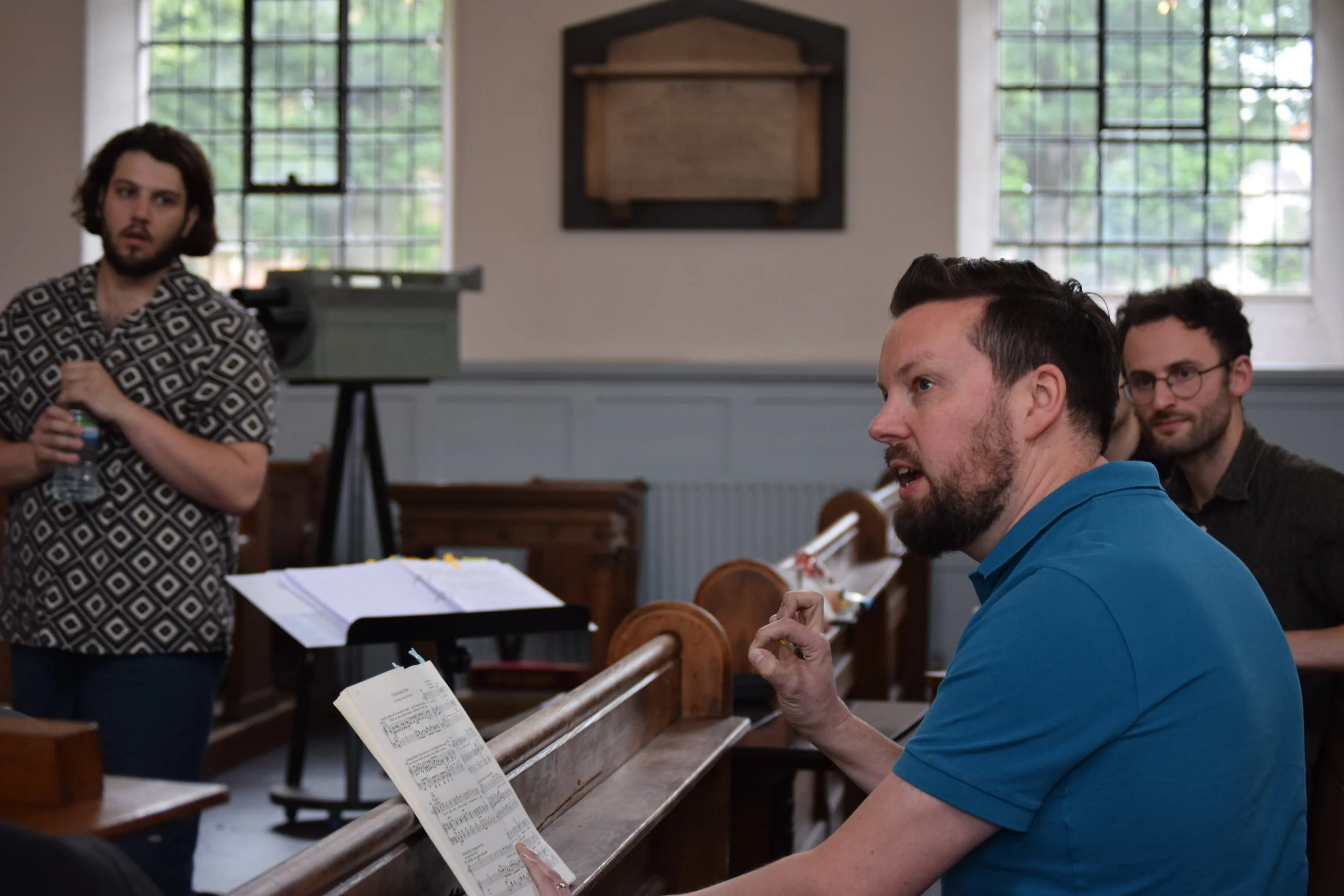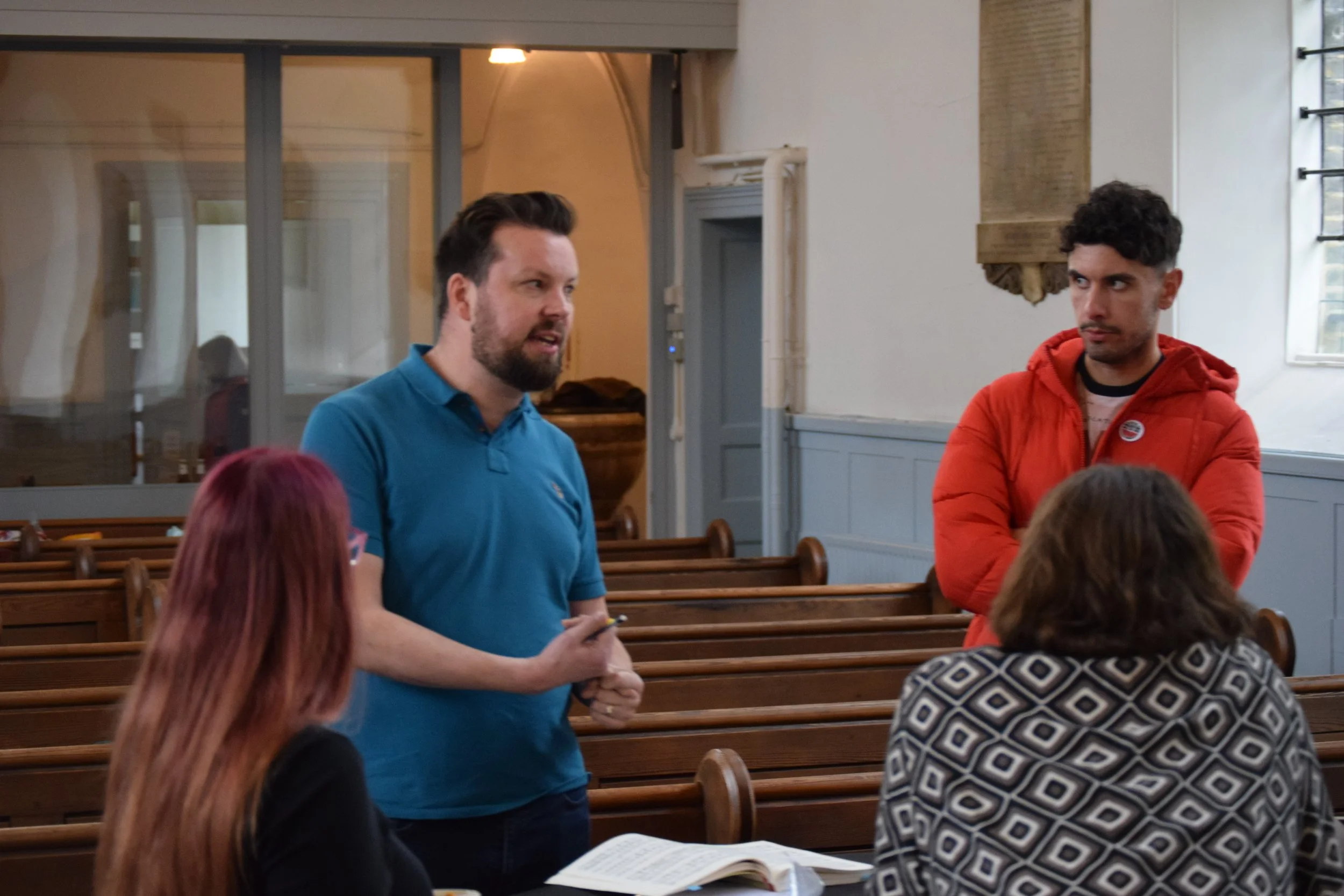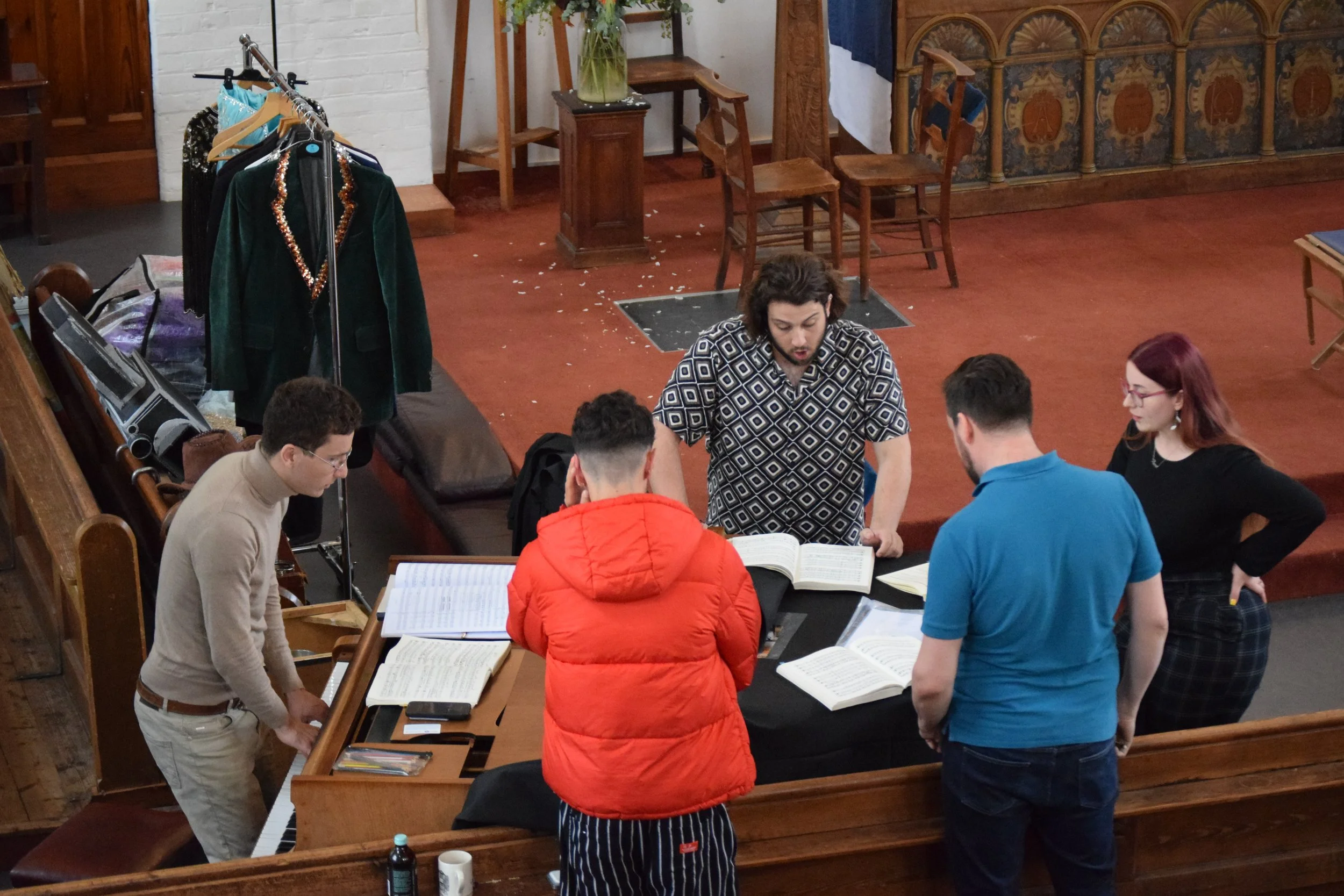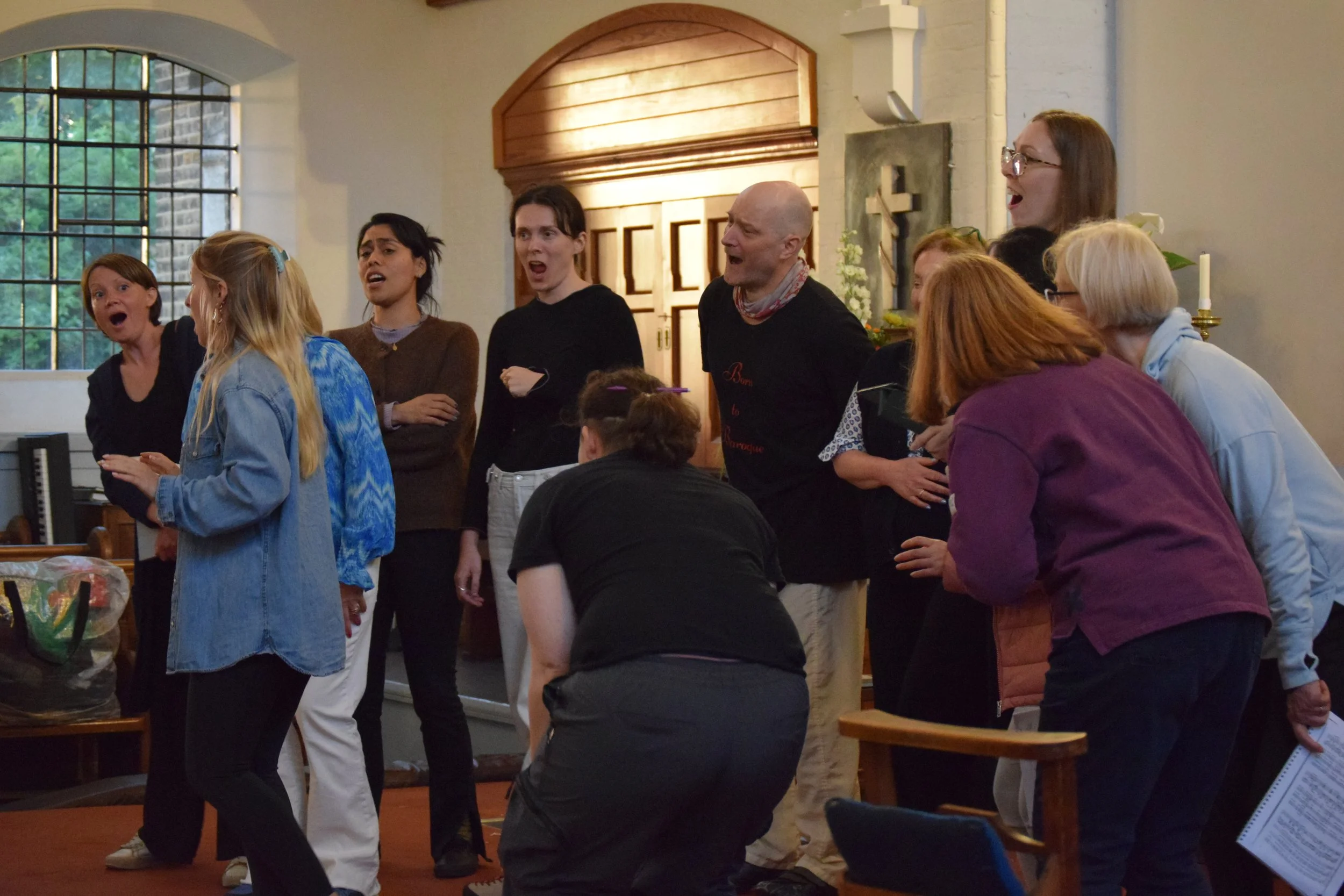Clapham author Julie Anderson was given a sneak peak at SPO’s summer opera Die Fledermaus, during an intensive rehearsal that was also attended by SPO patron David Butt Philip
Caught in the act…
…the other evening, at St Paul’s Church, Clapham, a diverse group of individuals, apparently drunk and disorderly, following numerous counts of identity theft. Said riotous assembly seemed also to be the subject of an illicit film and the authorities will be monitoring social media platforms given the likelihood of it surfacing…
The sun had not yet set when I was privileged to witness a rehearsal for St Paul’s Opera’s summer production of Die Fledermaus, Strauss’s joyous operetta celebrating life, love and ridiculousness one New Year’s Eve in late 19th century Vienna. SPO places the opera several decades later in time, during the golden age of silent films in Hollywood, with a new script by director Jonny Danciger. That night, with musical direction from the piano by George Ireland, “Slightly off tempo there, let’s do that again”; physical direction from Danciger, “What to do with the book? Snap it closed!” and sharply enunciated interjections from the international opera-star-patron of SPO, David Butt Philip, “That’s Chutt-t, but don’t stay on it too long, you need to take a breath” cast members were put, very thoroughly, through their paces.
Act Three’s gaol scene trio between Eisenstein (Bulgarian American tenor/baritone, Thomas Litchev), his wife, Rosalinde (Lithuanian soprano, Rusne Tuslaite) and her former beau, Alfred (Australian tenor, Dominic Westwood) took physical, as well as musical shape. There was some stage business with Eisenstein’s disguise, a book and a change of chair, as well as some glorious singing. Of course, two out of the three characters on stage at this point are pretending to be other people and all of them have reason to feel guilty.
More directions followed in Adele’s ‘Laughing Aria’ from Act Two, (superbly sung by Lancashire-born soprano, Olivia Singleton) at Count Orlovsky’s New Year’s Eve ball. There was a lot of laughter, both real and feigned, as the chorus, led by the Count (German counter tenor, Jean-Max Lattemann, who was also the ‘Film Director’) moved right then left across the stage as Eisenstein’s confusion mounted. It will be interesting to see how this scene develops into its final form, perhaps taking on more of the character of a ‘silent’ movie.
Although there was no Champagne Song at this rehearsal, supporters and non-performing, SPO singers made sure the small audience had glasses full of wine and bowls of nibbles to munch upon. In the rests between rehearsal pieces, we were invited to indicate our preferences for future Summer operatic productions on a list handed out to each of us. I completed mine and folded it, not unlike a ballot paper, before handing it in. Then it was back to the ballroom. It’s been many years since I saw Die Fledermaus, though its tunes are so memorable and popular that recognition is instant. Besides, it is impossible to listen to this music and not feel one’s spirits lighten, buoyed up on a tide of joie de vivre as sparkling as the champagne with which Count Orlovsky toasts his company.
As I walked home, humming, across Clapham Common, the afterglow of the sunset reflected in the still water of Long Pond and the bats came out to play, flitting between the trees. This operatic flittermouse will soar, I am certain and I can’t wait to see it on July 4th.
Julie Anderson’s latest crime thriller The Midnight Man (Book One of The Clapham Trilogy) has just been published by Hobeck Books at £10.99.




